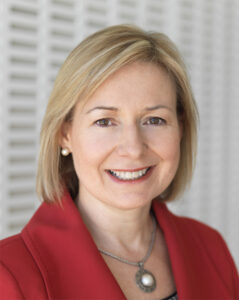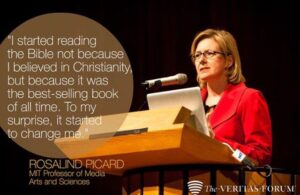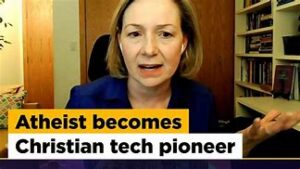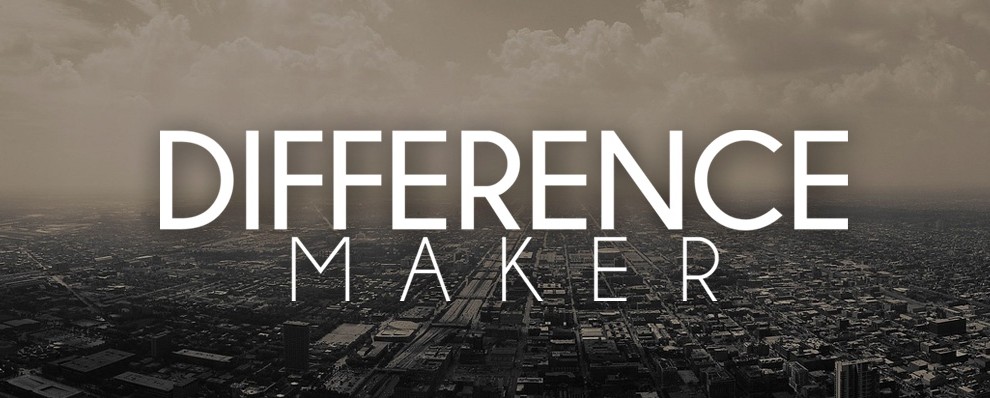Does Preaching Make A Difference?
Does Preaching Make A Difference?
In the last post I asked the question, “Is preaching worth the time and effort I put into it?” In today’s post I am continuing that theme, with a slightly different question: “Does preaching make a difference in the lives of people?” Spurgeon, as I reported in the last post, became a Christian because of a sermon that made the way of salvation clear. I thought of telling the story in this post about Billy Graham, who committed his life to Christ at a revival at which Mordecai Ham was preaching. But those examples seem so long ago. You may be thinking that in today’s post-Christian world that your words are falling on deaf, or at least distracted ears. So let me tell you a more up-to-date report of the impact of a sermon.
Meet Rosalind Picard
 Rosalind Picard is a professor at the Massachussets Institute of Technology, or MIT. She is also a prolific author, an inventor, and the founder of two startup companies that focus on remote health monitoring. Her special areas of research include “Affective Computing, Artificial Intelligence, Digital Health, Human-Computer Interaction, Machine Learning”. (From the Wikepedia article about her)
Rosalind Picard is a professor at the Massachussets Institute of Technology, or MIT. She is also a prolific author, an inventor, and the founder of two startup companies that focus on remote health monitoring. Her special areas of research include “Affective Computing, Artificial Intelligence, Digital Health, Human-Computer Interaction, Machine Learning”. (From the Wikepedia article about her)
When she was very young, she made a decision. This is how she put it in her testimony, as reported by Christianity Today:
As early as grade school, when I was a voracious reader and a straight-A student, I identified with being smart. And I believed smart people didn’t need religion. As a result, I declared myself an atheist and dismissed people who believed in God as uneducated.
Reading the Bible Makes A Difference
Does preaching make a difference in someone who is an avowed atheist? Rosalind’s ongoing testimony says that the answer is, “Yes!”
A couple that she babysat for invited her to church. This couple was highly educated, and didn’t fit the profile that she had created for “church” people. But Rosalind didn’t want to go–after all, she was an atheist. So she created fake illnesses as her excuse to avoid accepting their invitation. Apparently, the couple realized what was going on, and so challenged her to read through the book of Proverbs. Here’s what happened after that.
When I first opened the Bible—this was the King James Version—I expected to find phony miracles, made-up  creatures, and assorted gobbledygook. To my surprise, Proverbs was full of wisdom. I had to pause while reading and think.
creatures, and assorted gobbledygook. To my surprise, Proverbs was full of wisdom. I had to pause while reading and think.
I quietly bought a modern translation called The Way and read through the entire Bible. While I never heard actual voices or anything to justify summoning a neurologist, I felt this strange sense of being spoken to. It was disturbing yet oddly attractive. I began wondering whether there really might be a God.
She read through the Bible again, always evaluating what she was reading.
Preaching Makes A Difference
 Eventually, she was ready to go to church–and this is where preaching comes into the picture.
Eventually, she was ready to go to church–and this is where preaching comes into the picture.
During my freshman year in college, I reconnected with a friend I had met at a summer honors program. He was a straight-A student and a star on both the basketball court and football field—I had never known anyone so smart and athletic. He helped me with difficult physics homework, and then he invited me to his church. This time, I felt fine.
The sermon prompted many questions. I started to raise my hand while the pastor spoke before realizing that everyone else was sitting quietly. I nudged my friend: “Can we ask questions?” He hushed me. How do we learn if we can’t ask? After the sermon I tried getting answers, but people mostly wanted to socialize. I started coming to Sunday School classes because the teachers let me ask questions. I also kept reading.
One Sunday, the pastor talked about the difference between believing there is a God and following God. I knew Jesus claimed to be “the way” to God, but I had been trying to avoid anything Jesus-related—I couldn’t help hearing his name with the word freak attached. But the pastor got my attention when he asked, “Who is Lord of your life?” He discussed what happens when “you, a human being, put yourself on that throne.”
She decided to create a challenge. She asked Jesus to be the Lord of her life to see if anything would happen. And everything changed. You can read the rest of that story by going to the Christianity Today article about her testimony.
The Point
The point for this post is to challenge you to think about the question again: Does preaching make a difference in the lives of my hearers? You see, you don’t know if there is someone like Rosalind Picard in your audience. God is likely working in the lives of many of the people listening to you. As you prepare your messages, remember this. Be aware that God is at work, and you get to be one of the tools that he uses.



